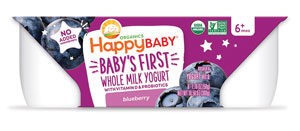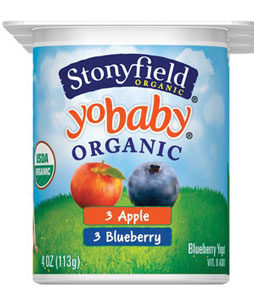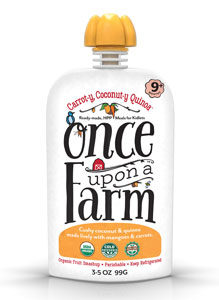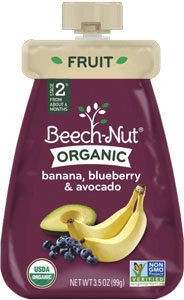When your wee one is ready for solid foods, what are the best ones to start him or her on and why? We checked in with Jill Castle, R.D., childhood nutrition expert and author of Fearless Feeding (Jossey-Bass, 2013), for her advice.
Solid Foods
“The general recommendation is to start them on solids around 6 months,” says Castle. “You can feed them with a spoon or take a whole-foods self-feeding approach, where your baby can grasp the food—for example, strips of toast, avocado or cooked sweet potato.”
Castle stresses the importance of nutrient-dense foods. “Iron in particular is critical to a baby’s brain growth in the first few years,” she says, recommending iron-fortified baby cereal reconstituted with breast milk or formula. “Start thin,” she adds.
Fat is also important in the early stages. “Half of your baby’s calories should be coming from fat,” says Castle. “Avocado is a great source of healthy fat. If you’re preparing your baby food, use healthy oils like a good-quality olive oil to add both flavor and good fat.”
From a food-allergy standpoint, Castle recommends introducing infants to classic food allergens such as peanuts, tree nuts and dairy. “Between 6 to 12 months, we want to expose them to sources of potential allergens to boost their immunity.”
Other good options: swirling a bit of peanut butter in cereal and introducing cooked eggs and poached salmon. “We want babies eating whole foods at the table by age 1,” says Castle.
Store-Bought
If pressed for time, or in need of on-the-go options, what should parents look for in store-bought baby food pouches and jars? “These definitely have a role in feeding young children, and they provide an enormous convenience factor,” says Castle. “They have also significantly improved in quality.”
So, should you always buy organic? Castle says that although USDA Organic–labeled products guarantee that parents won’t have to worry about preservatives or difficult-to-pronounce ingredients that may improve texture and flavor, many parents don’t have the means to take advantage of organic brands. “I never want to shame parents into buying organic,” she says. “A good practice to get into is to always look at the ingredient list. If the front of the package says ‘5 Veggies Blend,’ but then you read ‘apples’ as the first ingredient, this is misleading. If an ingredient is promoted on the front, you should see it as the first ingredient on the back.”
She also notes that, particularly for children younger than 2, you should choose foods without added sugar. “At that age, there isn’t a lot of real estate in the tummy for added sugar. In the baby food category, we’re not seeing a ton of added sugar in newer products these days, and with the updated nutritional labels, it’s easier to see the amount of added sugar.”
DIY
That said, you can’t beat making fresh food for your baby. “When you make your own, you can incorporate spices and herbs. Flavor profiles are so important in the first few years to develop a wide palate,” says Castle. “When we look at other cultures, for example in India with its curries and spices, they’re already doing that for their children. We would do well to adopt some of those practices.
“We want kids eating the family food and for the family diet to be nutritious,” Castle continues. “It’s a great time of life as a parent to step up your own nutrition, thinking about how you’re feeding yourself and how your family meals are nourishing your baby’s body and brain, too.”
Yogurt
Babies should avoid drinking whole milk until age 1, but the American Academy of Pediatrics approves introducing yogurt at 6 months.
Try Happy Baby Baby’s First Whole Milk Yogurt
USDA organic and non-GMO. Sweetened with organic fruit and veggie purees. happybabyorganics.com
Try Stonyfield Organic YoBaby
Made with pasture-raised, USDA Organic and non-GMO milk. Plain, vanilla and fruit blends. stonyfield.com
Natural and organic, non-GMO baby and toddler brands to try
Once Upon a Farm
Cold-pressed, USDA Organic fruit and veggie blends. Available in the refrigerator section. onceuponafarmorganics.com
Beech-Nut Organic
USDA Organic pure fruits, veggies and baby cereal in jars and pouches. beechnut.com
Simple Truth
USDA Organic fruit and veggie purees, plus purees with oats, grains and Greek yogurt. simpletruth.com
Gerber
Natural and USDA Organic pure fruits and veggies, and blends for various stages of growth. gerber.com





